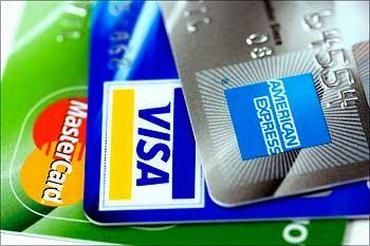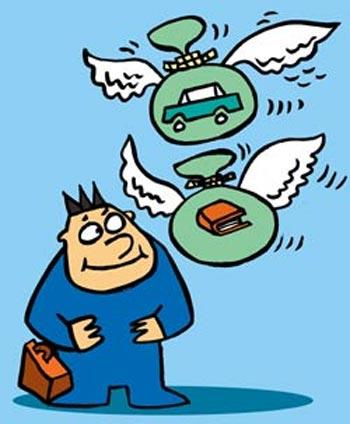Ranjeet S Mudholkar, CFPCM
While many individuals focus most of their time and energy on learning how to earn more money, it is important to note that without learning how to spend the earned money wisely along with the discipline of saving and prudent investing, they may not be able to create a promising future for themselves and their families.
Money plays an important role in our lives. On one side it serves as a tool for wealth creation for achievement of our future needs, on the other side it also serves as an instrument of transaction for satisfaction of our present needs.
While financial planning allows individuals to meet all future life goals by prudent management of money and finances, it may be observed that learning how to spend money wisely could serve as a first step towards the bigger process.
Both areas call for ascertaining the need, efficiency, and time frame before getting started.
The writer is working with Financial Planning Standards Board India (FPSB India) in the capacity of Vice Chairman and Chief Executive Officer. The views expressed here are personal, and do not necessarily represent that of the organisation. FPSB India is the sole marks licensing authority for the CFP marks in India, through agreement with US-based FPSB Ltd.
How to spend your money wisely
Learning how to spend wisely is all about getting the right value for every rupee spent. The appropriate decisions on the mode of transaction, namely, whether by cash/cheque, credit card or equated monthly installment, EMI, mode further streamlines the process depending on finance readily available as well as comfort.
The first step is to make a budget for spending which may include regular expenditure, non-recurring one-time expenditure and even discretionary expenditure to ensure a thorough cash-flow management to be never out of money and to be able to save enough for financial and other goals.
The next step is to classify regular and non-discretionary expenditure. This may include expenditure on grocery, electricity, power, fuel and communication, laundry, domestic help, restaurants and entertainment expenses. Being regular unavoidable expenses, a broad limit may be fixed so that the total expenditure does not go out of control.
In addition, making bulk purchases with friends/family may collectively help to get good discounts as well. Ideally, the right mode for such transactions should be cash, debit card and/or credit card (only for the credit free period).
How to spend your money wisely
The next in line is the discretionary expenditure. This may include the expenses which can be controlled as per our discretion. Some of the expenses within this category may be expenses on furniture, consumer durables or even a holiday.
The idea is not to stop the expenditure in this category but to plan it wisely in line with our goals, and only after doing a thorough cost-benefit analysis. The aspect of finance and the payment mode should also be evaluated carefully.
For example, one should not get enticed by zero interest EMI offers and should consider the hidden costs like processing fee, etc. while deciding on the same.
Being discretionary in nature, it is advisable to make the expenditure only from a planned budget and amount set aside for discretionary expenses.
Credit card may be used only as a payment mode rather than a financing tool, as the cost of finance is highest in the region of 35 per cent to 40 per cent per annum on credit cards.
The Impulse purchases for out of budget expensive items on account of sale or discount should be avoided.
How to spend your money wisely
In addition, it may be taken into account that negotiation skills play a very important role in saving costs and getting the best deal in the market. We should not hesitate to ask for complimentary products or services.
For instance, we can negotiate for a room tariff in case of hotel booking or ask for complimentary services like added breakfast, lunches/dinners (MAP/AP Plans), airport pick-up and drop services, etc. Consumers have the right to demand discount on maximum retail price (MRP) printed on the product as well.
There is also a need to think personal expenditure differently.
Unlike corporate expenditure, which is made to increase productivity to enhance shareholders' value, the individual expenditure has to be in line with the life goals.
How to spend your money wisely
For example, the capital expenditure like plant and machinery can be justified by the company by way of capacity expansion, benefits of claiming depreciation and corporate taxation.
However, buying a high-end luxury car (on impulses and on EMI) cannot be justified without suitable analysis.
Similarly, intangible assets may be valued and accounted, as well as depreciation claimed by a company, but for an individual it may not have any relevance. Some exceptions to this could be expenses toward education in various courses, booking, journals etc. for self or for immediate family members, which have long term benefits.
Education loans may also be procured in such cases, if possible.
It is important that income should be judiciously allocated between the present and the future spends. For the future, we should save and invest wisely as per our risk appetite. For the current expenses, we should be well budgeted to be able to meet all requisite expenses.
Thus, no more than one third of our net income should be used to service the debts, and our savings should at least be one third of our net income.
Accordingly, our expenses should not exceed one third of our net income in principle. It is advisable to seek an advice from a certified financial planner professional to draw a comprehensive financial plan to be able to achieve all our life goals.






Comment
article